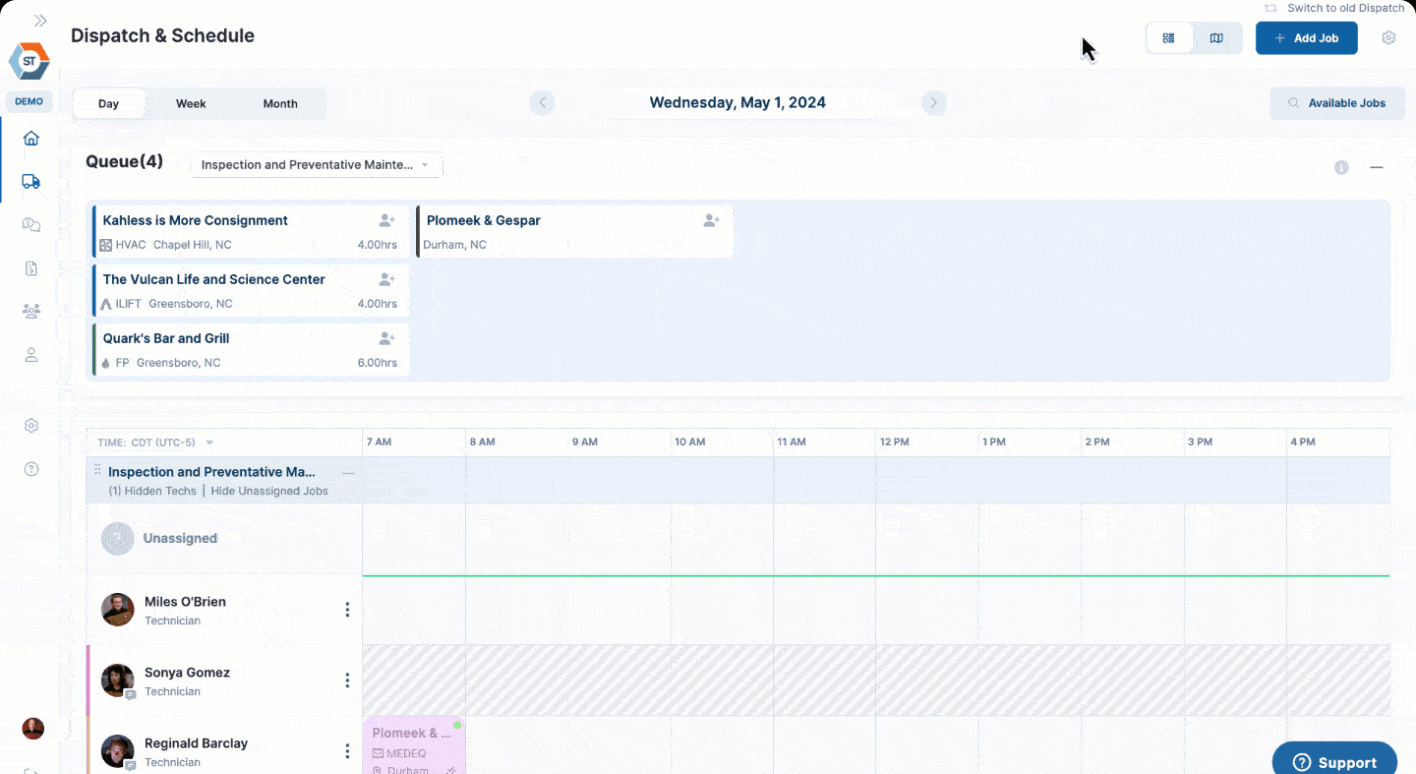Looking for HVAC Software That’s Compatible with Quickbooks? Here’s Why ServiceTrade is the Best.
As an HVAC service provider serving commercial clients, efficient financial management is crucial to the success and growth of your business. In order to streamline your accounting processes, enhance financial accuracy, and save time and costs, integrating Quickbooks with specialized software designed for the HVAC industry can be a game-changer. In this article, we will explore the benefits of Quickbooks-integrated software for HVAC businesses and provide actionable insights on how to choose the right software for your needs.
The Benefits of Quickbooks-Integrated Software for HVAC Businesses
Integrating Quickbooks with specialized software designed for HVAC businesses can provide numerous benefits for streamlining accounting processes, enhancing financial accuracy, and saving time and costs.
1. Streamlined Accounting Processes
Managing invoices, expenses, and payroll manually can be time-consuming and prone to errors. Quickbooks-integrated software automates these processes, saving you valuable time and ensuring accuracy. With automated invoice and expense tracking, you can easily generate and send professional invoices to your clients, reducing the administrative burden. Additionally, simplifying payroll management will streamline your operations and free up your team to focus on more important tasks.
2. Enhanced Financial Accuracy
Mistakes in calculations and data entry can have significant financial consequences for your business. Quickbooks-integrated software minimizes human errors by automating various financial processes. Real-time synchronization with Quickbooks ensures that your financial data is always up to date, allowing you to make informed decisions based on accurate information.
3. Time and Cost Savings
Manual data entry and paperwork can be tedious and inefficient. By integrating Quickbooks with specialized HVAC software, you can minimize manual tasks and paperwork. This not only saves time but also reduces the risk of errors. Moreover, using a single software solution that is compatible with Quickbooks eliminates the need for separate accounting software and additional training, saving you money and resources.
Key Features to Look for in Quickbooks-Integrated HVAC Software
When choosing the right Quickbooks-integrated software for your HVAC business, it’s important to consider specific features that cater to the needs of the industry.
- Compatibility and Integration: Ensure that the software seamlessly integrates with Quickbooks to avoid compatibility issues and facilitate smooth data transfer. Also, verify that the software supports the version of Quickbooks used by your business to ensure seamless compatibility.
- Invoice and Estimation Capabilities: Look for software that offers robust invoice and estimation capabilities. This includes the ability to generate and send professional invoices to clients, complete with your branding and necessary details. Additionally, estimation tools will help you create accurate cost estimates and quotes, ensuring transparency and effective communication with your clients.
- Job Costing and Project Management: As an HVAC business serving commercial clients, tracking project expenses and profitability is crucial. Look for software that allows efficient job costing and project management. This will enable you to track costs associated with specific projects, monitor profitability, and make data-driven decisions to maximize your financial performance.
Factors to Consider when Choosing the Right HVAC Software
While the integration with Quickbooks is important, there are other factors to consider when selecting the best HVAC software for your business.
Scalability and Customization
Choose software that can adapt to your business’s growing needs. Your HVAC business may evolve over time, and having scalable software ensures that it can accommodate your changing requirements. Additionally, software that allows customization of reports, forms, and workflows will enable you to tailor it to your specific business processes.
Mobile Accessibility
HVAC businesses often have technicians working in the field, and accessibility on mobile devices is crucial. Look for software that offers a mobile app, allowing your team to access important information, update job statuses, and communicate with the office in real-time, regardless of their location.
Training and Support
Implementing new software can be daunting, so it’s essential to choose a provider that offers comprehensive training resources and ongoing support. Consider the availability of online tutorials, user guides, and customer support channels. Evaluating the ease of implementation and integration with your existing systems can also contribute to a smooth transition.
By integrating Quickbooks with specialized software designed for HVAC businesses, you can take your HVAC business to the next level. Streamlined accounting processes, enhanced financial accuracy, and time and cost savings are just a few of the benefits you can achieve. When selecting the right software, consider features such as compatibility, invoice and estimation capabilities, job costing and project management, scalability, mobile accessibility, and training/support options. By investing in the right Quickbooks-integrated software, you will elevate your business operations and financial management, ultimately driving growth and success in the competitive HVAC industry.
—
Learn about ServiceTrade’s HVAC field service software here.

